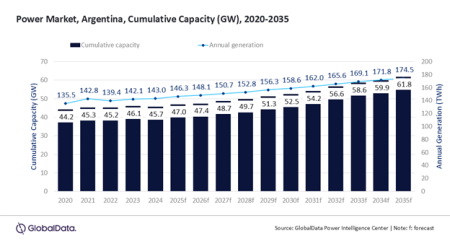 Oritsegbubemi Omatseyin
Oritsegbubemi Omatseyin
Lagos — The Major Energy Marketers Association of Nigeria, MEMAN, has emphasised that Electric Vehicles, EVs, are crucial to Nigeria’s energy transition, tackling climate change and boosting energy security. MEMAN affirmed that ongoing innovations like solid-state batteries, wireless charging, and vehicle-to-grid (V2G) technology are poised to accelerate adoption despite high initial costs and limited infrastructure.
These insights were among the key highlights of the MEMAN Quarterly Press Webinar where experts discussed Nigeria’s energy future, emphasising the role of electric vehicles, EVs, energy diversity, and refining capacity in shaping the nation’s energy landscape.
MEMAN during the Webinar reaffirmed its commitment to advancing Nigeria’s energy sector, emphasizing that its advocacy and strategic initiatives are driven by core principles, market philosophy, and values that continue to guide its leadership in the evolving energy landscape.
MEMAN further stressed that transitioning to Electric Vehicles, EVs, is vital for sustainability, reaffirming its commitment to championing this shift while continuing to support traditional energy sources.
Huub Stokman, Chairman of MEMAN and Managing Director of NNPC Retail Ltd, in his remark at the session, revealed that the underlying philosophy of the major energy marketers is to serve the best interests of the Nigerian consumer and citizen.
According to him, MEMAN’s mission aligns with the Federal Government of Nigeria’s National Petroleum Policy 2017 and the Petroleum Industry Act 2021, both of which emphasise energy accessibility and sustainability.
Speaking on the strategic importance of EVs adoption in Nigeria, the Chairman said that MEMAN will continue to advocate for a diverse energy mix that includes traditional fuels, renewables, and innovative technologies.
Stokman pointed out that EV technology is not new but has been in development for years. He highlighted that regions like Europe and China are leading the global transition towards EVs, with China targeting full adoption by 2035, while Europe aims to achieve a major shift by 2024.
The Chairman also cited Norway as a prime example of successful EV adoption, with the country on track to reach 100% EV usage by 2025. He noted that Norway’s progress serves as a model for other nations worldwide.
According to him, the evolution of EVs is closely tied to the development of comprehensive transport policies, road networks, and infrastructure systems that work in harmony to support the transition.
Stokman emphasised that as a part of our recommendations, MEMAN is calling for Formation of Petroleum Industry Consultative Committees to guide the industry, resolve potential conflicts, and enhance collaboration.
He further recommended the preparation for multiple scenarios in today’s challenging environment, highlighting that a proactive approach is key to anticipating and navigating risks to ensure the stability and growth of Nigeria’s energy sector.
He highlighted that as Nigeria emerges as an African refining powerhouse, MEMAN celebrates the important progress achieved by both public and private sectors, with the launch of Dangote Refinery and the establishment of modular refineries being pivotal for securing the nation’s energy future.
He acknowledged that while initial startup challenges are expected, these refineries will significantly influence the country’s energy landscape for years to come.
Stokman also emphasised the importance of maintaining an environment where competition can thrive, as it encourages efficiency, reduces costs, and ensures consumers have access to the best possible energy solutions.
MEMAN emphasised the necessity for collaboration among all stakeholders in both the public and private sectors to effectively navigate the complex energy supply chain during the current energy transition, enabling the industry to tackle challenges and achieve optimal outcomes for consumers and the nation.
Mr. Sam Oloye, Chairman and CEO of SAGLEV Incorporated, emphasised the urgent need for a shift from traditional energy sources to Electric Vehicles, EVs, and renewable energy, citing the critical role this transition plays in combating climate change.
Highlighting the increasing frequency of weather-related incidents globally, he stressed that adopting EVs offers a cost advantage for users, particularly through reduced maintenance expenses and lower energy costs compared to hydrocarbons.
Oloye noted the significant advancements in battery technology, particularly with Lithium Iron Phosphate (LFP) batteries, which now offer improved storage capacity, making EVs a more viable option.
He underscored the environmental benefits of EV adoption, including the reduction of greenhouse gas emissions, lower air pollution, and decreased noise levels. Economically, EVs provide lower operating costs, reduced fuel expenses, and potential incentives for owners.
To further drive adoption, Oloye called for greater investment in EV charging infrastructure, urging the development of widespread charging stations, including home and fast-charging networks.
He also advocated for the Nigerian government to implement robust policies supporting EVs and for automakers to commit to increasing EV production in the country.
Adding to the discussion, Akinkunmi Akingbogun, Head of Project e-Mobility and Renewable Energy at Sterling Bank, highlighted the need for Nigerian filling stations to begin integrating EV infrastructure to meet the demands of the growing number of EV users.
He reaffirmed Sterling Bank’s commitment to promoting EV adoption, revealing that the bank has introduced the “Qoray” brand and is offering innovative financing solutions to support local EV production.
During the forum, the speakers stressed that EVs are critical to addressing climate change, reducing emissions, and enhancing energy security.
The forum covered the different types of EVs, Battery Electric Vehicles (BEVs), Plug-in Hybrid Electric Vehicles (PHEVs), Hybrid Electric Vehicles (HEVs) and their potential role in Nigeria’s energy landscape.



